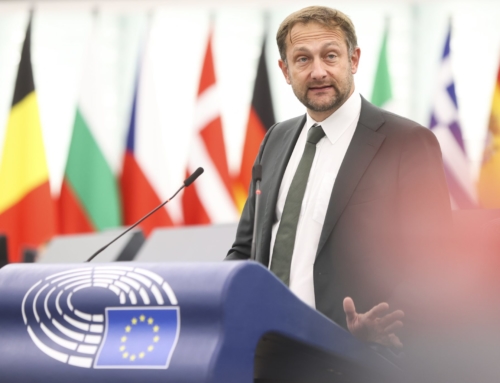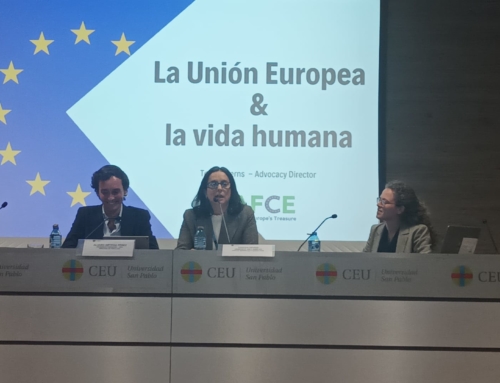Brussels, 2nd July 2024
The Council of the European Union last week adopted an update on its EU Guidelines on Children and Armed Conflict. The Guidelines were first adopted in 2003 and previously updated in 2008. In a press release the Council said it is “gravely concerned about the rise of violations of children’s rights in the context of armed conflict, exacerbated by the proliferation of wars, including Russia’s war of aggression against Ukraine and its unlawful deportation and forcible transfer of Ukrainian children”.
FAFCE recalls that “the family has always been the place where freedom, democracy and solidarity were preserved in times of war and totalitarianism. Mothers and fathers, beyond their nationalities, do not want war. The family is the school of peace.”
In our 2022 Spring Resolution entitled Families and family associations are builders of peace, our Board called “on all decision-makers to courageously ensure, by available means, protection for families and a sustainable peace in Ukraine as soon as possible. This is so that parents can uphold their responsibility in raising children in freedom and in hope”. It continued by encouraging “decision-makers to utilise and support the fieldwork provided by family associations and families in their everyday contribution to peaceful communities”.
Families and communities have a constructive and essential role in the building of peace. Families must be supported in order to prepare the reconstruction of the future of Ukraine and peace in Europe. In particular, FAFCE reminds of the necessity to tackle the child and family poverty that is an inevitable consequence of war and is inexorably exacerbated by violence and destruction. That is why we reiterate that families and networks of families should be prioritised since they are crucial to combating loneliness, increasing social cohesion, and ending the horror of child poverty. We again commend the work of the Madrina Foundation, Amici dei Bambini, the 3+ large family association, and the many FAFCE members and friends who have shown solidarity to refugees and victims of war.
The Council of the EU’s focus on the “forcible transfer” of children and human trafficking is a correct one, as it affects every country ravaged by war. Indeed, FAFCE welcomed the inclusion of the exploitation of surrogacy as human trafficking when the Council of the EU adopted the relevant directive in May. FAFCE is part of the Casablanca Declaration campaign for the universal abolition of surrogacy. FAFCE has long been a voice against surrogacy, as an industry in countries like Ukraine, but also as a violation of human dignity as expressed in our resolution from 2016.
In a recent comment on last month’s Justice and Home Affairs Council meeting, FAFCE President Vincenzo Bassi said: “We need an unequivocal unity across Europe in abolishing the use of surrogacy, which is a primary tool for human traffickers. It is a moral tragedy, both for the mother and the child who is separated from their mother. FAFCE calls for surrogacy to be treated as a form of exploitation and selling of children. Crucially, the Council must respect the principle of subsidiarity where countries have national competency for family law and parenthood.
“The war in Ukraine has not changed the country’s status as an international surrogacy hub, but greater humanitarian protection is still needed for people who have fled the conflict. FAFCE supports the many family networks who are at the forefront of welcoming Ukrainian refugees in their member state countries, providing them community in the face of loneliness, and hope in the midst of despair.”
FAFCE also united in prayer to the act of Consecration of Ukraine to the Immaculate Heart of Mary and ran a fundraising campaign for Ukrainian families.







